Difficulty:
The Umbwe route on Mount Kilimanjaro is extremely challenging and should only be attempted by experienced hikers. It’s the steepest and least-traveled route on the mountain with steep ascents, scrambling over rocks, and multiple exposed ridges.
Food & Drink:
Staying well-nourished is critical on Kilimanjaro, especially when altitude may reduce your appetite. Our head chef has designed menus to be both appealing and energy-packed. Fresh fruits and vegetables are served daily, with fresh meat available at the start of the trek and resupplied at Karanga Camp on southern routes. After summiting, enjoy a celebratory “All Day English Breakfast” at base camp—just let us know how you like your eggs! Before leaving, don’t miss the chance to try local Tanzanian dishes like Njegere and Machalari.
Accommodation:
Your itinerary includes hotel stays and meal plans in Moshi before and after the climb. If you’re arriving from a safari, we arrange accommodations in Arusha to reduce travel time. Be prepared for occasional water and electricity outages, which may affect hot showers. On the mountain, we use high-quality Mountain Hardwear Trango 3 tents, designed for extreme conditions but with limited space. Meals are served in a spacious mess tent equipped with tables, chairs, and ample headroom. A toilet tent with toilet paper is also provided.
Transport:
We prioritize high-standard vehicles and professional drivers for all transfers. Note that rear seatbelts may not always be available in Tanzania, and police checks are common but not a reflection of the vehicle or driver’s reliability. If you have any concerns, please inform the driver or our local team immediately.
Airport Transfers:
From your arrival at Kilimanjaro International Airport in a Toyota Alphard to trailhead transfers in rugged Toyota Hiace or Coaster vehicles, we ensure comfort and safety. Complimentary amenities like water, Wi-Fi, and wet wipes are provided. Our drivers are experienced, English-speaking professionals dedicated to making your journey seamless.
Luggage:
- Climbing Bag Weight: Kilimanjaro National Park enforces a strict 15kg limit per porter, including your sleeping bag. Bags are weighed at the hotel; if overweight, you’ll need to leave items behind or hire additional porters at $25/day.
- Plastic Bag Ban: Tanzania banned single-use plastic bags in 2019. Use sustainable alternatives like packing cubes. Zip-lock bags for liquids in carry-on luggage are permitted.
How Do I Get There?
For travelers from the UK or US, flying into Kilimanjaro International Airport (JRO) is ideal. KLM offers flights from major airports, with a layover in Amsterdam. Our tours begin in Moshi, a short drive from JRO, where we arrange transport. Consider scheduling a rest day after your flight. Flights through Nairobi are not recommended due to potential delays and baggage issues. Airlines like Turkish, Emirates, and Qatar also serve JRO, with varying experiences depending on your departure point. For those extending their trip, flights to Zanzibar from Dar es Salaam are a convenient option.
Travelling Responsibly:
We offset carbon emissions for our trips, excluding flights. Use our provided eCO2 calculator to offset your flight emissions.
Fitness and Training:
Our Kilimanjaro Training Guide offers valuable tips to help you prepare physically for the climb.
Budget & Currency:
The Tanzanian Shilling is a closed currency, so bring new, crisp US dollars. ATMs and currency exchanges are available at the airport. Notify your bank if using cards abroad to avoid issues.
Leave No Trace Adventure:
At Tranquil Kilimanjaro, we’re committed to eco-friendly treks. Our goal is to leave Kilimanjaro cleaner than we found it. A dedicated team ensures no waste is left behind and even collects litter from other groups. We minimize plastic use, with compostable lunch packaging sourced from Vegware, a UK-based eco-friendly provider.
Safe Storage of Luggage:
Store unnecessary items like suitcases, safari clothes, or gadgets in our secure facilities or trusted hotel storage. Bring only what’s essential for the climb.
Dedicated Support Team:
Your tour is managed by over 200 professionals specializing in reservations, transfers, expeditions, logistics, and more. Our 24/7 travel consultants are available via phone, email, or messaging to address your needs promptly.
All-Inclusive Park Fees:
Our trips cover all park fees, including camping, conservation, rescue, crew, and forest fees. These fees account for roughly half the total cost, reflecting the higher price of Kilimanjaro treks compared to other destinations.
Professional Guides and Porters:
Your adventure is led by experienced Kilimanjaro guides with at least seven years of expertise. They share fascinating stories about the mountain’s history, culture, and wildlife while respecting your need for solitude.
Skilled Expedition Team:
Our guides are supported by porters, camp managers, and chefs who handle logistics, set up camp, and prepare nutritious meals to keep you energized.
Tipping:
We follow the Kilimanjaro Porters Assistance Project’s guidelines: 6−10/dayperporter,6−10/dayperporter,20/day for guides, and $12-15/day for assistant guides and cooks per group. Additional tips for porters assisting on summit night are appreciated. Tips are collected and distributed at the hotel after the climb for security, with envelopes provided for clarity.

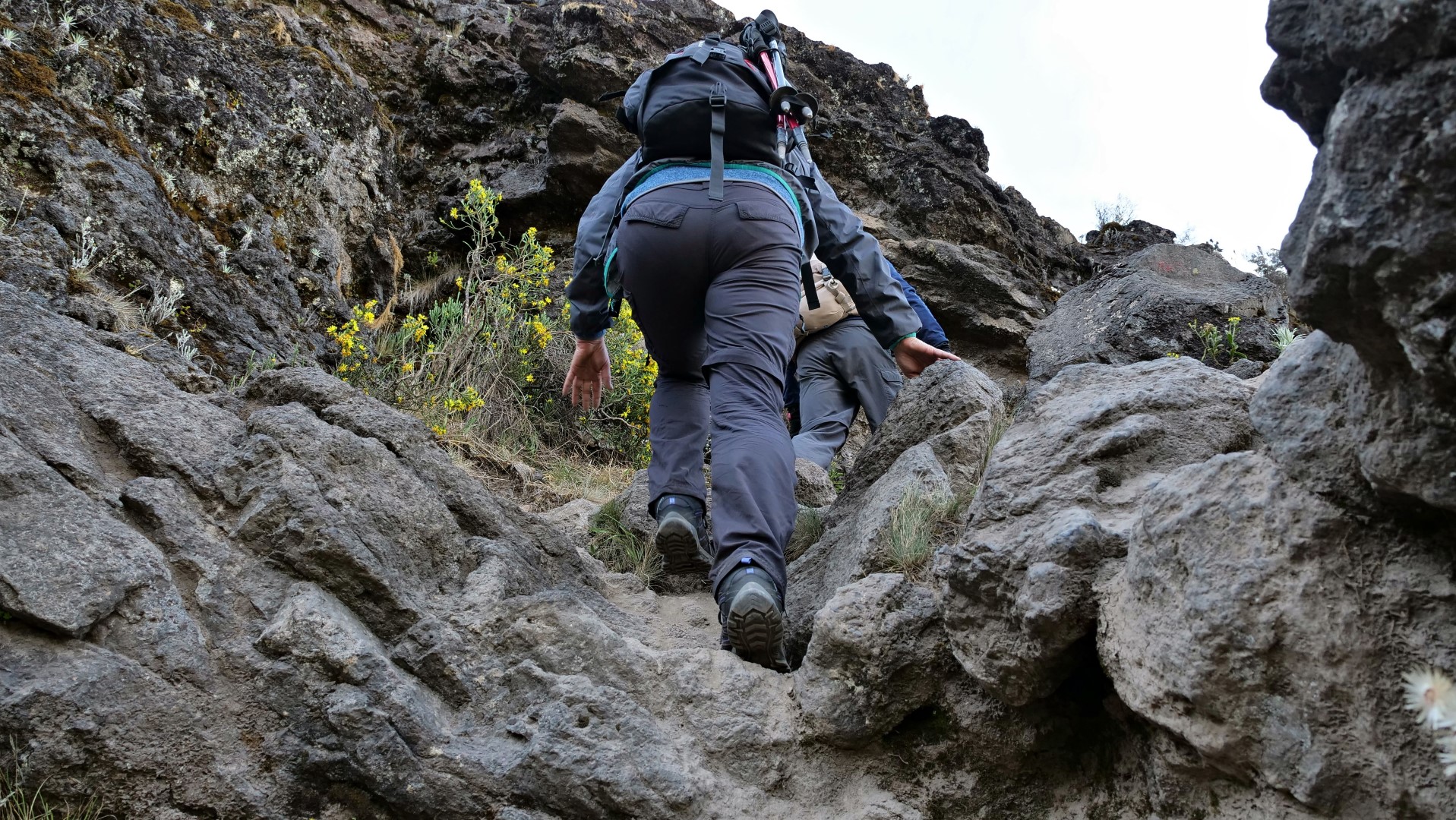
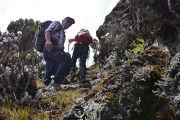
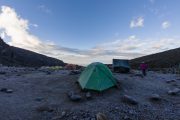
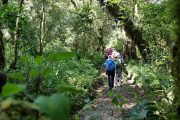
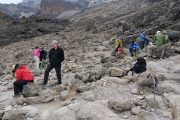
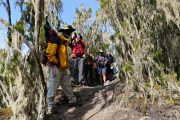
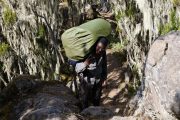
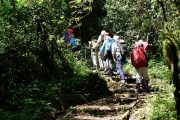
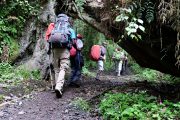
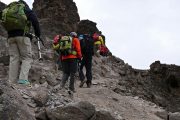
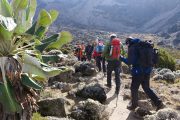
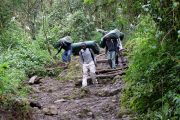
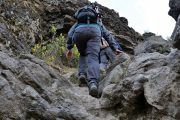
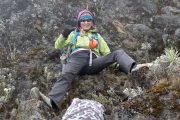
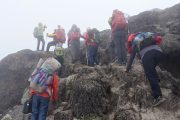
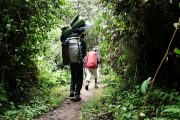
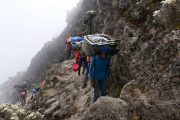
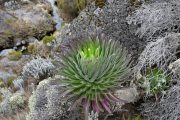
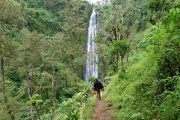
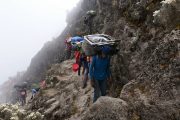
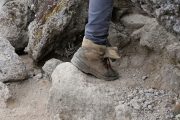
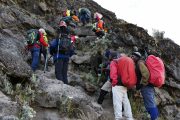
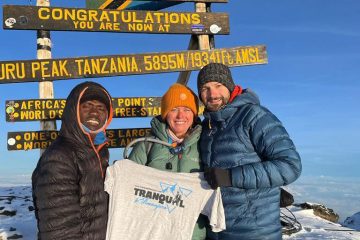
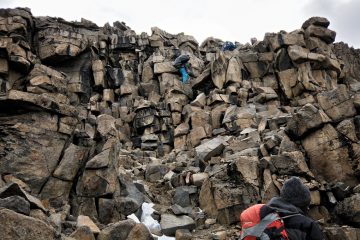
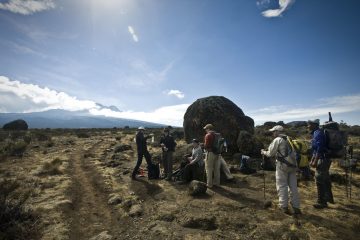
Tour Reviews
There are no reviews yet.
Leave a Review